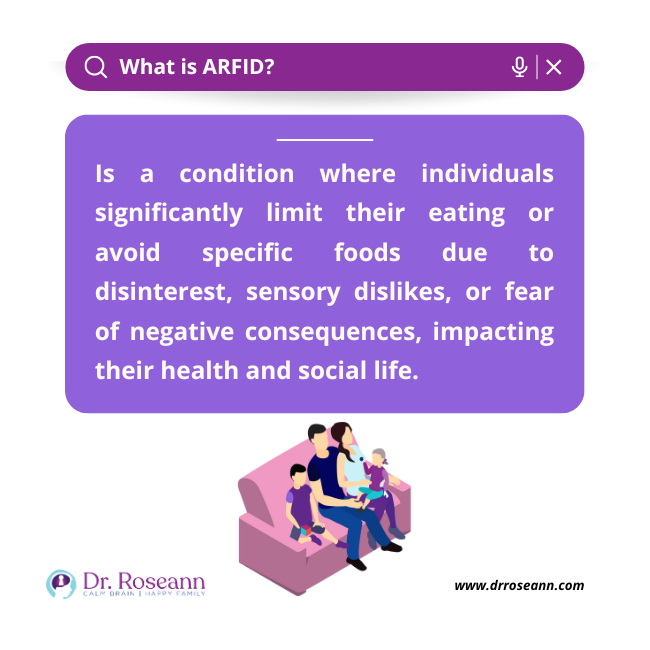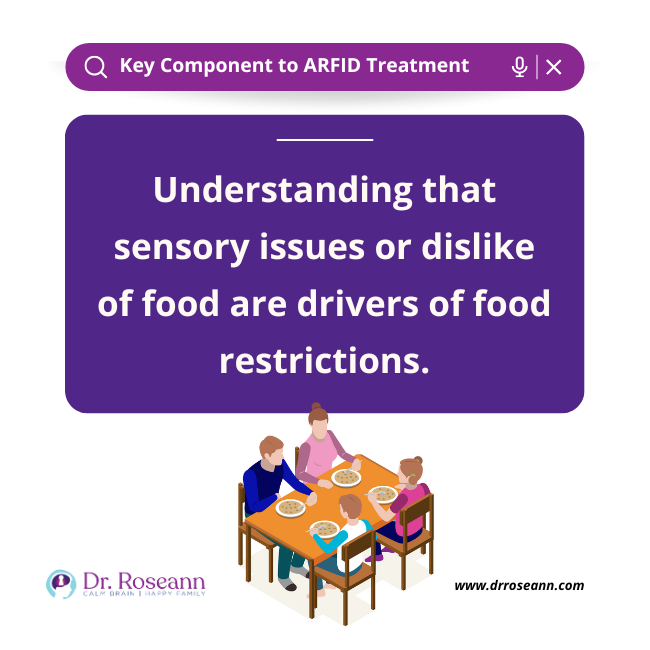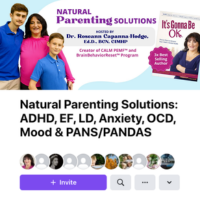Being an expert in mental health, I was featured in an article by Healthline titled, “Taylor Swift Talks About Eating Disorders in New Netflix Doc: Why That Matters”. In this article, I discussed the importance of Taylor Swift talking about her eating disorder and its effects. Here is a quote from the article:
“‘Taylor Swift is held in such high esteem by girls and young women that when she says, ‘Look, even I feel this way and I developed a clinical problem that I took care of,’ it sends the message that [people with eating disorders] should get help and can get better,’ Dr. Roseann Capanna-Hodge said.”
In the world of celebrity, the scrutiny of body image often overshadows the artistry and talent of individuals like Taylor Swift. Swift's documentary “Miss Americana,” which premiered on Netflix, provided a poignant insight into her struggles with body image and the relentless pressure she faced to conform to societal standards of beauty. But what do we know about Taylor Swift’s eating disorder?
Taylor Swift’s Revelations in “Miss Americana”
In the Miss Americana documentary, Taylor Swift offers a candid portrayal of her body image and self-esteem battles. She opened up about her long-standing struggles with body dysmorphia and disordered eating habits. Despite her global success, her journey towards self-acceptance and body positivity has been fraught with challenges.
Swift's revelations shed light on the pervasive influence of unrealistic beauty standards in the entertainment industry. As a public figure, she has been subjected to relentless scrutiny and criticism regarding her appearance. The pressure to maintain a certain image took a toll on her mental and emotional well-being and highlighted the damaging impact of societal expectations.
What is ARFID Eating Disorder?

ARFID stands for Avoidant Restrictive Food Intake Disorder. It is a complex eating disorder characterized by a persistent and disturbed eating pattern that results in inadequate intake of food and may lead to significant nutritional deficiencies and weight loss. In children, it results in impaired growth, reliance on enteral feeding, and significant interference with psychosocial functioning.
Unlike other eating disorders like anorexia nervosa or bulimia nervosa, which involve concerns about body shape and weight, individuals with the ARFID disorder may avoid certain foods or food groups due to sensory issues, lack of interest in eating, and fear of aversive consequences, such as choking or vomiting. This avoidance or restriction of food intake can result in severe malnutrition and other medical complications (Brigham et al., 2018).
The ARFID eating disorder can affect individuals of any age but is more commonly diagnosed in children and adolescents. However, it can persist into adulthood if left untreated. Treatment typically involves a multidisciplinary approach tailored to the child’s needs, such as nutritional rehabilitation, cognitive-behavioral therapy, and ongoing support from a treatment team.
How Do You Get an ARFID Treatment?
The treatment for ARFID eating disorders involves a multifaceted approach aimed at addressing the various aspects of the disorder. Initially, a thorough medical evaluation is conducted to assess the child or teen’s physical health to identify any nutritional deficiencies or medical complications resulting from the disorder.
Nutritional rehabilitation is a cornerstone of ARFID treatment, typically guided by a registered dietitian or nutritionist who develops a structured meal plan to gradually expand the child’s food choices and ensure adequate nutrition. This process often includes exposure therapy to help the child become more comfortable with previously avoided foods.
ARFID therapy includes cognitive-behavioral therapy, being a commonly used approach. CBT helps individuals identify and challenge the negative thoughts and behaviors surrounding food and eating. Family-based therapy may also be employed, particularly for children and adolescents. Involving the family in the treatment process to provide support and facilitate progress (Shimshoni & Lebowitz, 2020).
Regular monitoring of the individual's weight, nutritional status, and overall well-being is essential throughout treatment. Ongoing support from a multidisciplinary treatment team, including physicians, therapists, dietitians, and other healthcare professionals, helps ensure progress and address any challenges that arise.
Education about nutrition, healthy eating habits, and coping strategies for managing anxiety or other triggers related to food is provided to empower individuals in their recovery journey. Collaboration with other healthcare providers, such as gastroenterologists or psychiatrists, may be necessary to address specific medical or mental health concerns that are contributing to ARFID.

Taylor Swift’s Message of Empowerment
Through “Miss Americana,” Swift sends a powerful message of resilience and self-empowerment. She shares her journey towards embracing her authentic self and rejecting the toxic narratives imposed by others. Speaking openly about her struggles encouraged fans to challenge harmful beauty standards and prioritize self-love and acceptance.
This documentary on eating disorders serves as a reminder that behind the glamorous facade of celebrity lies a vulnerable human being. Swift's willingness to confront her insecurities and vulnerabilities humanizes her in the eyes of her fans.
It also fostered a deeper connection based on empathy and understanding. She was able to encourage viewers to look beyond superficial appearances and recognize the complexity of individuals' inner lives.
What causes ARFID?
The exact ARFID causes are not fully understood, but it is believed to result from a combination of genetic, biological, psychological, and environmental factors. The causes of ARFID may include sensory sensitivities, anxiety or fear surrounding food, past traumatic experiences, and learned behaviors related to eating.
Is ARFID real?
Yes. ARFID or Avoidant/Restrictive Food Intake Disorder is recognized as a legitimate psychiatric diagnosis in the Diagnostic and Statistical Manual of Mental Disorders (DSM-5), published by the American Psychiatric Association.
Is being a picky eater an eating disorder?
Being a very picky eater alone does not necessarily constitute an eating disorder. However, if extreme pickiness leads to significant nutritional deficiencies, weight loss, or impairment in social or occupational functioning, it may be indicative of an eating disorder.
How is ARFID diagnosed?
ARFID is typically diagnosed through a comprehensive evaluation by a qualified healthcare professional, such as a physician, psychologist, or psychiatrist. Diagnosis involves assessing the individual's eating behaviors, nutritional status, medical history, and any psychological or emotional factors that may contribute to the disorder.
What is restrictive eating?
Restrictive eating disorders refer to a pattern of eating where an individual limits their food intake by restricting the quantity or variety of foods consumed. Acquiring restrictive eating habits can occur for various reasons, such as attempting to control body weight, adhering to dietary rules or beliefs, or due to disordered eating patterns.
Do I have ARFID?
If you're concerned that you might have ARFID or any other eating disorder, it's essential to seek professional help from a qualified healthcare provider, such as a physician, psychologist, or dietitian. They can conduct a thorough evaluation and provide you with an accurate diagnosis and appropriate treatment recommendations based on your specific symptoms and circumstances.
Can malnutrition cause low blood pressure?
Yes, malnutrition can contribute to low blood pressure. When the body doesn't receive adequate nutrients, it can lead to various physiological changes, including a decrease in blood volume and electrolyte imbalances, which can in turn lower blood pressure.
What does food aversion mean?
Food aversion refers to a strong dislike or avoidance of certain foods or types of food. This aversion can be due to various reasons, including psychological factors, past negative experiences, sensory sensitivities, cultural influences, or medical conditions.
Is food aversion an eating disorder?
Food aversion is not inherently an eating disorder but can be a symptom or component of one. It involves a strong dislike or avoidance of certain foods, which may impact a child’s relationship with food and overall well-being.
Is being a picky eater a disorder?
Being a picky eater is not necessarily a disorder but can sometimes indicate selective eating disorders, a condition characterized by being an extremely picky eater, which leads to nutritional deficiencies and social difficulties.
Why are some people picky eaters?
Some children may be picky eaters due to sensory sensitivities, where certain textures, tastes, or smells are perceived differently, leading to aversions to particular foods. Others may develop picky eating habits due to learned behaviors, past negative experiences with food, or psychological factors such as anxiety or control issues around eating.
Citations
Brigham, K. S., Manzo, L. D., Eddy, K. T., & Thomas, J. J. (2018). Evaluation and Treatment of Avoidant/Restrictive Food Intake Disorder (ARFID) in Adolescents. Current Pediatrics Reports, 6(2), 107–113. https://doi.org/10.1007/s40124-018-0162-y
Shimshoni, Y., & Lebowitz, E. R. (2020). Childhood ARFID: Review of Treatments and a Novel Parent-Based Approach. Journal of Cognitive Psychotherapy, JCPSY-D-20-00009. https://doi.org/10.1891/jcpsy-d-20-00009
Dr. Roseann is a mental health expert in Mental Health who frequently is in the media:
- HappiHuman: Is it an Eating Disorder or OCD
- Life's Essential Ingredients Connecting at the Root
- The Hero Show Natural Solutions for Children's Mental Wellness
Always remember… “Calm Brain, Happy Family™”
Are you looking for SOLUTIONS for your struggling child or teen?
Dr. Roseann and her team are all about solutions, so you are in the right place!
There are 3 ways to work with Dr. Roseann:
You can get her books for parents and professionals, including: It’s Gonna Be OK™: Proven Ways to Improve Your Child’s Mental Health, Teletherapy Toolkit™ and Brain Under Attack: A Resource For Parents and Caregivers of Children With PANS, PANDAS, and Autoimmune Encephalopathy.
If you are a business or organization that needs proactive guidance to support employee mental health or an organization looking for a brand representative, check out Dr. Roseann’s media page and professional speaking page to see how we can work together.
Dr. Roseann is a Children’s Mental Health Expert and Licensed Therapist who has been featured in/on hundreds of media outlets including The Mel Robbins Show, CBS, NBC, PIX11 NYC, Today, FORBES, CNN, The New York Times, The Washington Post, Business Insider, Women’s Day, Healthline, CNET, Parade Magazine and PARENTS. FORBES called her, “A thought leader in children’s mental health.”

She coined the terms, “Re-entry panic syndrome” and “eco-anxiety” and is a frequent contributor to media on mental health.
Dr. Roseann Capanna-Hodge has three decades of experience in working with children, teens and their families with attention-deficit hyperactivity disorder (ADHD), autism, concussion, dyslexia and learning disability, anxiety, Obsessive Compulsive Disorder (OCD), depression and mood disorder, Lyme Disease, and PANS/PANDAS using science-backed natural mental health solutions such as supplements, magnesium, nutrition, QEEG Brain maps, neurofeedback, PEMF, psychotherapy and other non-medication approaches.
She is the author of three bestselling books, It’s Gonna Be OK!: Proven Ways to Improve Your Child's Mental Health, The Teletherapy Toolkit, and Brain Under Attack. Dr. Roseann is known for offering a message of hope through science-endorsed methods that promote a calm brain.
Her trademarked BrainBehaviorResetⓇ Program and It’s Gonna be OK!Ⓡ Podcast has been a cornerstone for thousands of parents facing mental health, behavioral or neurodevelopmental challenges.
She is the founder and director of The Global Institute of Children’s Mental Health, Neurotastic™Brain Formulas and Dr. Roseann Capanna-Hodge, LLC. Dr. Roseann is a Board Certified Neurofeedback (BCN) Practitioner, a Board Member of the Northeast Region Biofeedback Society (NRBS), Certified Integrative Mental Health Professional (CIMHP) and an Amen Clinic Certified Brain Health Coach. She is also a member of The International Lyme Disease and Associated Disease Society (ILADS), The American Psychological Association (APA), Anxiety and Depression Association of America (ADAA) National Association of School Psychologists (NASP), International OCD Foundation (IOCDF).
© Roseann-Capanna-Hodge, LLC 2024
Disclaimer: This article is not intended to give health advice and it is recommended to consult with a physician before beginning any new wellness regime. *The effectiveness of diagnosis and treatment vary by patient and condition. Dr. Roseann Capanna-Hodge, LLC does not guarantee certain results.













